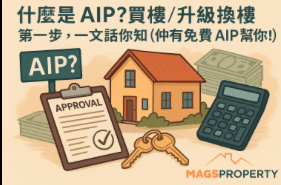
房产租赁回报计算
在英国,物业管理公司负责管理房屋出租,提供租赁和管理服务。这些服务需要支付一些费用。例如,每月租金为700英镑,年租金收入为8400英镑,每次租赁需要付出570英镑的租赁费用(含增值税)。此外,物业管理公司收取10%的管理费用,加上增值税,每月为84英镑,每年为1009英镑。此项费用涵盖了房产的日常管理,如收租金、维修和维护以及处理租户问题。
房东还需要支付某些强制性费用,以确保房屋的安全性并符合法律要求。这些包括每10年一次的电气证书,费用为130英镑(每年13英镑);每年一次的煤气证书,费用为72英镑;每10年一次的能源绩效证书(EPC),费用为75英镑(每年7.5英镑)。此外,建议支付60英镑的年检费,以确保房产得到妥善维护,并符合安全规定。
当扣除所有这些费用后,房东每年将获得6669.5英镑的租金回报(8400 – 570 – 1009 – 13 – 72 – 7.5 – 60 = 6669.5)。下面的图表将这些费用和租金收入可视化,以帮助房东更好地了解他们的房产回报。
| 描述 | 金额(£) |
|---|---|
| 每月租金 | £700 |
| 年租金收入 | £8,400 |
| 出租费用 | £570 (含增值税) |
| 管理费用 (租金的10%) | £84/月 |
| 管理费用 (年度) | £1,009 |
| 电气证书费用 | £13/年 |
| 煤气证书费用 | £72/年 |
| 能源绩效证书费用 | £7.5/年 |
| 年检费用 | £60/年 |
| 总支出 | £1,731.50 |
| 净租金收入 | £6,669.50 |
租金收益率分析
根据提供的表格,该物业的年租金收入为£8,400。扣除所有费用后,包括出租费用、管理费用和维护费用,净租金收入为£6,669.50。
要评估这是否是良好的投资回报,我们需要将其与物业成本进行比较。例如,如果该物业的购买成本为£100,000,则租金收益率为6.7%(通过将净租金收入除以物业成本并乘以100来计算)。
一般来说,租金收益率为5%或更高则被认为是出租物业的良好回报。因此,在这种情况下,6.7%的租金收益率表明这是一个良好的投资回报。但是,需要注意的是,租金收益率可能会因各种因素而有所不同,例如地点、物业类型和当地出租市场条件。
此外,该物业的价值也可能随着时间的推移而升值,这可以进一步增加房东的总回报。因此,房东在评估出租物业的投资回报时,应同时考虑租金收益和潜在的资本增值。
UK Property Investment – Rental Return Calculations
In this scenario, the rental income per year is £8,400 (£700 per month). However, the landlord will need to pay some fees associated with letting and managing the property.
The letting fee, which is charged whenever a new tenant is found, is £570 including VAT. This fee is paid to the property management company.
In addition, the property management company charges a management fee of 10% of the monthly rent plus VAT. This works out to be £84 per month (£700 x 10% = £70 + VAT = £84) or £1,009 per year. This fee covers the ongoing management of the property, such as collecting rent, arranging repairs and maintenance, and dealing with tenant issues.
There are also some mandatory fees that landlords in the UK must pay to ensure their property is safe and meets legal requirements. These include an Electrical Certificate, which is required every 10 years and costs £130 (so £13 per year); a Gas Certificate, which is required annually and costs £72 per year; and an Energy Performance Certificate (EPC), which is required every 10 years and costs £75 (so £7.5 per year). Additionally, an annual inspection fee of £60 is recommended to ensure the property is being properly maintained and is compliant with safety regulations.
So, when you deduct all these fees from the rental income, the landlord will receive £6,669.5 per year (£8,400 – £570 – £1,009 – £13 – £72 – £7.5 – £60 = £6,669.5). This amount is the rental return the landlord can expect after all the fees have been taken into account.
By hiring a property management company to manage the rental property, the landlord can benefit from the convenience and peace of mind of having a professional take care of everything related to the rental, while still receiving a reasonable rental return.
| Description | Amount (£) |
|---|---|
| Monthly Rent | £700 |
| Annual Rent Income | £8,400 |
| Letting Fee | £570 (inc VAT) |
| Management Fee (10% of Rent) | £84/month |
| Management Fee (Annual) | £1,009 |
| Electrical Certificate | £13/year |
| Gas Certificate | £72/year |
| EPC Certificate | £7.5/year |
| Annual Inspection | £60/year |
| Total Expenses | £1,731.50 |
| Net Rental Income | £6,669.50 |
ROI Analysis
Based on the table provided, the annual rental income of the property is £8,400. After deducting all the expenses, which includes the letting fee, management fee, and maintenance fee, the net rental income comes to £6,669.50.
To evaluate whether this is a good return on investment or not, we need to compare it with the cost of the property. For example, if the property was purchased for £100,000, the rental yield would be 6.7% (calculated by dividing the net rental income by the cost of the property and multiplying by 100).
Generally, a rental yield of 5% or more is considered to be a good return on investment for a rental property. Therefore, in this case, a rental yield of 6.7% indicates that it is a good return on investment. However, it is important to note that rental yields can vary depending on various factors such as location, property type, and local rental market conditions.
Additionally, the property may also appreciate in value over time, which can further increase the overall return on investment for the landlord. Therefore, it is important for the landlord to consider both the rental yield and potential capital appreciation when evaluating the return on investment for a rental property.






